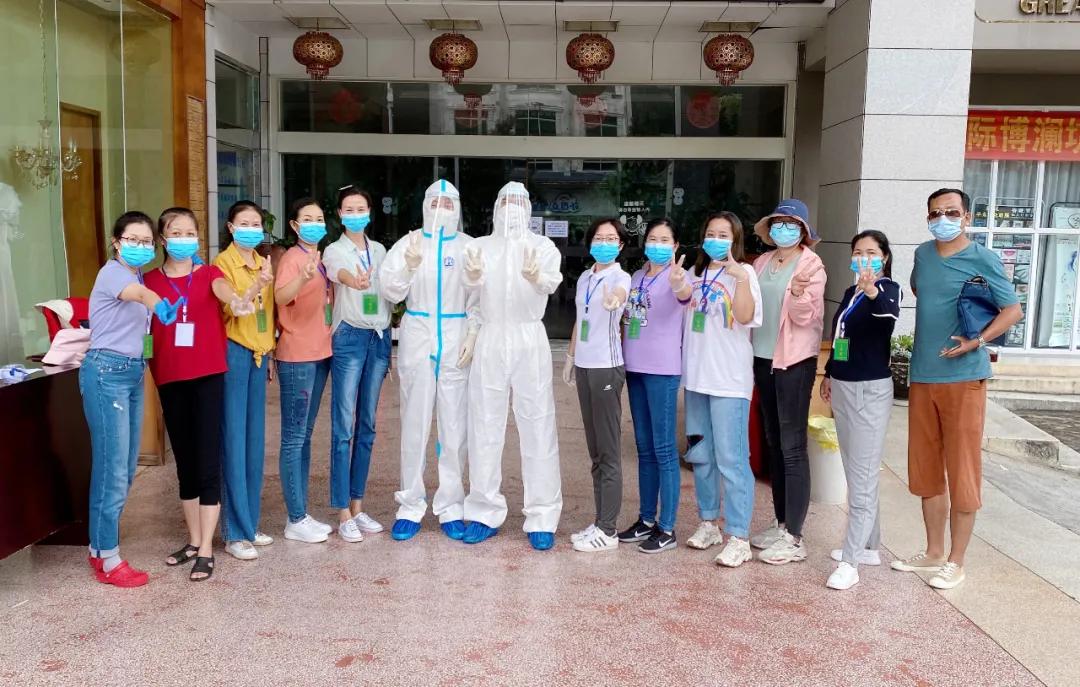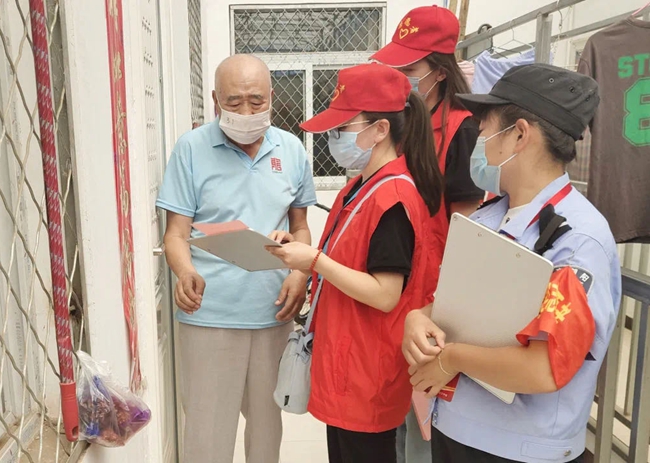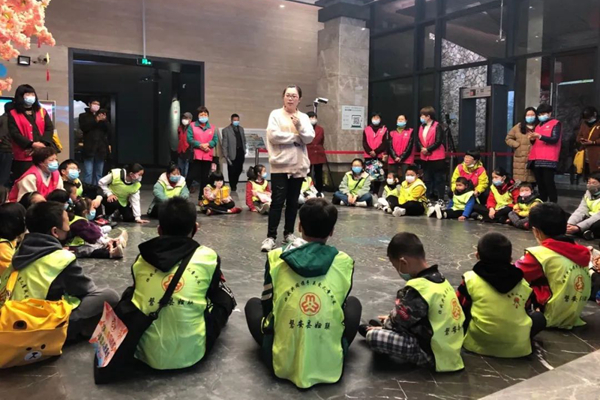
An Ordinary Nurse's Heroic 52-Day Life Experience
 |
| Zhang Shuo finishes quarantine in north China's Tianjin Municipality, March 31, 2020. [Xinhua/Li Ran] |
Zhang Shuo, a nurse, recalls her experience of aiding local colleagues in Wuhan to fight the coronavirus.
TIANJIN, April 3 (Xinhua) — With excitement and a sense of relief, 28-year-old Zhang Shuo phoned her parents as soon as she finished quarantine.
After 52 days in the virus-hit Wuhan battling coronavirus and being quarantined for 14 days in north China's Tianjin Municipality, Zhang finally returned home safe and sound.
"I live on my own in Tianjin. My mother promised to cook dumplings for me when I go back to my hometown in east China's Shandong Province," she said.
Zhang, a nurse at Tianjin Medical University General Hospital's Airport Hospital, volunteered to aid local colleagues in Wuhan to fight the coronavirus two months ago.
Before departure, Zhang cut her long hair to reduce infection risks and watched videos over and over again to learn how to wear protective suits with correct procedures.
"I practiced with my colleagues in one protective suit, which broke after being put on and taken off many times," Zhang said.
It was a sleepless night. "We are called 'angels in white,' and we are responsible for the health of others," she said.
Zhang was never far from her patients' beds, checking their names, delivering their medicine, taking their temperatures, monitoring their blood oxygen saturation, and taking good care of their diet and daily life during her four-hour shifts.
There was nothing different from her usual work except for being protected head-to-toe in a hazmat suit and an N95 mask, a pair of goggles and latex gloves most of the time in the ward.
The goggles quickly fog up, blurring her sight, making it difficult to insert patients' needles. But then, Zhang learned a small trick to tackle the trouble, which was to put some iodophor inside the goggles and dry them up. She jokingly said that she wore the most fashionable sunglasses in the ward.
Wearing a protective suit for a long time, she was drenched in sweat, and her nose bridge and ears were left with marks from wearing a protective mask. Moreover, she sometimes fell short of breath and dizzy due to the demanding tasks.
"I wore diapers when working in the ward," she said. "Every time I took off the protective gear, it seemed as if my body was finally free of being bundled."
In Wuhan, Zhang also acted as a reporter. She took photos and videos, recording the precious moments of the medical team fighting against coronavirus and the touching moments between medics and patients in the ward. Some of the videos have received nearly 1 million views on social media platforms.
"The 128G phone memory was full. I plan to make a documentary covering the anti-coronavirus experience," Zhang said.
Some netizens commented that the videos helped them know what had happened in the hospital, and more importantly, medics' lovely appearance.
On March 17, Zhang received the order of returning to Tianjin. "I was not excited at first, but felt a bit reluctant to part with the heroic city of Wuhan and my brave teammates," Zhang said.
On the way to Wuhan Tianhe Airport, Zhang saw many people waving their hands alongside the road, and some car horns blared to show respect for the medics. She could not help weeping.
"I can boast about my 52-day heroic experience for the rest of my life, which makes me mature quickly," Zhang said.
(Source: Xinhua)
- Women Workers and Volunteers Contribute to Citywide Nucleic Acid Test in Qingdao
 Ruili Women's Federation in Yunnan Joins Anti-COVID-19 Epidemic Battle
Ruili Women's Federation in Yunnan Joins Anti-COVID-19 Epidemic Battle Chaoyang Women's Federation in Beijing Makes All-Out Efforts in Fight Against Virus
Chaoyang Women's Federation in Beijing Makes All-Out Efforts in Fight Against Virus- Women's Federations in C China's Hubei Help Women's Enterprises Resume Work
- County Heads, Women's Federations' Presidents Promote Agricultural Products via Livestreaming Shows
 Medic's Stories About Anti-Virus Fight Inspire Left-Behind Children at Women's Federation's Activity
Medic's Stories About Anti-Virus Fight Inspire Left-Behind Children at Women's Federation's Activity

 京公网安备 11010102004314号
京公网安备 11010102004314号